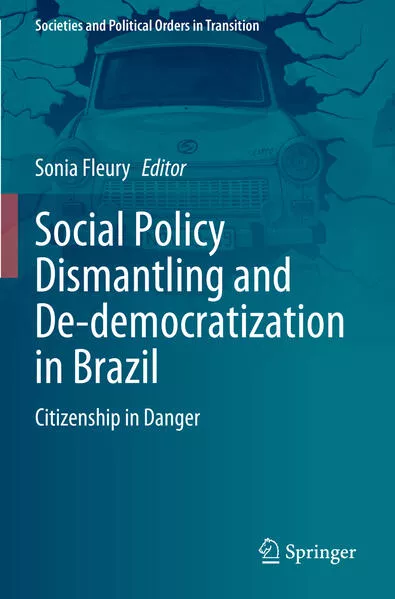
- Publikationen ca: 3
- Fragen & Antworten
Sonia Fleury
Sonia Fleury is a senior researcher from the Oswaldo Cruz Foundation’s (FIOCRUZ) Center of Strategic Studies and coordinator of the Interinstitutional Study Group on Futures of Social Protection. Previously, she was a full professor at the School of Public Administration and Business at Getulio Vargas Foundation, Rio de Janeiro, Brazil. Fleury holds a PhD in Political Science and a Master Degree in Sociology. Her research focuses on democracy, social protection, and citizenship in Latin America. She was among the top 10.000 Scientists in Latin America according to the AD Scientific Index Ltd. World Scientist and University Rankings 2021.
Social Policy Dismantling and De-democratization in Brazil
This book examines the emergence of authoritarian populist regimes, analyzing Brazil as a case study. The authors explain how the tactics employed by the Bolsonaro administration to dismantle bureaucracy and public policies, especially labour and social policies, find expression in the fiscal austerity measures recently inscribed in the Federal Constitution: a counter-democratic device employed by technical and financial elites to systemically derail the social protection system.
Social Policy Dismantling and De-democratization in Brazil
This book examines the emergence of authoritarian populist regimes, analyzing Brazil as a case study. The authors explain how the tactics employed by the Bolsonaro administration to dismantle bureaucracy and public policies, especially labour and social policies, find expression in the fiscal austerity measures recently inscribed in the Federal Constitution: a counter-democratic device employed by technical and financial elites to systemically derail the social protection system.
Social Policy Dismantling and De-democratization in Brazil
This book examines the emergence of authoritarian populist regimes, analyzing Brazil as a case study. The authors explain how the tactics employed by the Bolsonaro administration to dismantle bureaucracy and public policies, especially labour and social policies, find expression in the fiscal austerity measures recently inscribed in the Federal Constitution: a counter-democratic device employed by technical and financial elites to systemically derail the social protection system.


